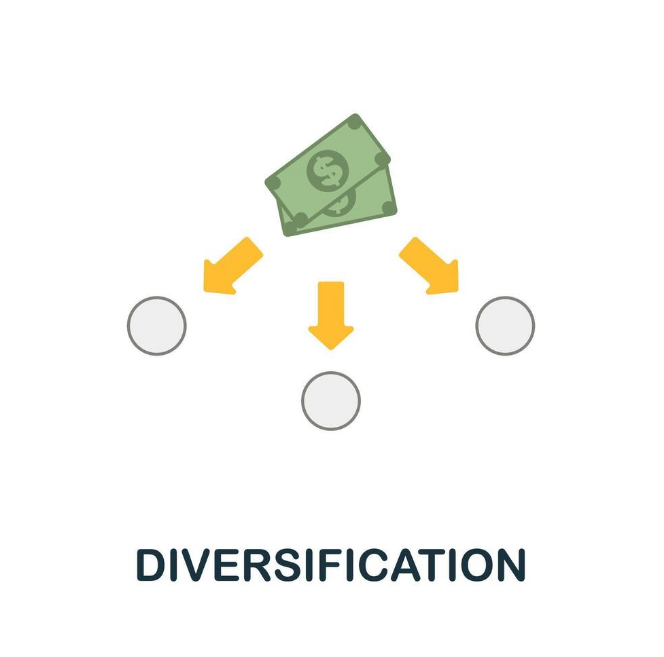Introduction
Investment funds are the best alternatives for most investors, as their portfolios are diversified and well managed professionally to maximize returns along with minimizing risk. With a variety of investment funds consisting of mutual funds, exchange-traded funds, and index funds, it becomes hard to find out which ones are the best. Yet, as long as one understands why investment funds are smart, one can be more able to decide on financial options. We will discuss the advantages of investment funds, the differences among various types, along with some examples.
Diversification – Reducing Risk in One Package
Diversification is the most powerful reason for investing in funds. By placing your money in a fund, you are merging your money with that from other investors and investing it into a slew of assets—equities, bonds, and real estate, amongst them. This spreads your investment and, by implication, reduces the risk associated with investing in any given asset.

Example: If a single stock is invested in and performs below expectations, your whole portfolio may be knocked down significantly. With the investment fund, you are only exposed to a minimum level on that particular asset, and one loss in a particular area can be counterbalanced by gains in another. This minimization of risk makes funds ideal for novice investors who want to make wealth without exposing themselves too much to risk.
Comparison: Mutual Funds vs. ETFs
- Mutual funds: They are actively managed, meaning a professional fund manager picks the stocks, bonds, and other assets within the fund.
- ETFs: ETFs are passively managed and therefore track a specific index. It means they are much less expensive to many investors.
Professional Management – Expertise at Your Disposal
Investment funds hire professional fund managers who have competent knowledge and resources to make responsible investment decisions. It doesn’t matter whether they will focus more on stock or bonds; these pros have the capability to ride the market fluctuations and adjust the portfolio in such a manner as to maximize returns.

Example: Vanguard‘s Vanguard Total Stock Market Index Fund is an actively managed fund providing direct access to the whole U.S. stock market, thus giving the investor the benefit of diversification but with experienced managers making the strategic decision.
Liquidity – Easy Access to Your Money
Liquidity refers to how easy it is for you to liquidate your investment. In the case of investment funds, they are quite liquid, meaning you can sell your shares easily at any time during the market hours. This is an attractive feature compared to other types of investments, such as real estate, which may take months to complete the process of selling assets.

Example: In the Fidelity 500 Index Fund, which is the ETF, you can quickly buy and sell shares just like stock trading, providing ready access for quick investor’ disposition in case of an urgent need to have the invested cash.
Low Minimum Investment Requirements – Start Small
Unlike most individual investments, whose minimum investment amount can be considerable to start, many investment funds have rather low minimum investment requirements. This means many are accessible to investors with a variety of budgets.

Example: Target Retirement Funds by Vanguard allows a person to start with as little as $1,000. This is ideal for investment beginners wanting to invest but do not have much capital to set aside at the start.
Comparison: Index Funds vs. Actively Managed Funds
- Index Funds: Lower fees and less amount of money needed to get started as this index fund usually merely tracks a specific market index like the S&P 500.
- Actively managed funds: It demands a higher minimum because of the amount of expertise required for actively managing a portfolio.
Cost-Effectiveness – Low Fees for Long-Term Gains
Investment funds also offer another important benefit, and that is cost-effectiveness. Funds typically charge their customers management fees, which may encompass the cost of hiring a fund manager to provide expertise plus administrative fees, among others. However, the fees for funds—especially low-cost index funds and ETFs—are often significantly cheaper than hiring your own personal financial advisor.

Example: Fidelity‘s ZERO Index Funds don’t charge management fees; thus, they represent one of the cheapest opportunities to invest in the stock market. Over the long term, these savings in management fees can become major gains.
Long-Term Growth Potential – Building Wealth Over Time
One of the most appealing reasons people invest in funds is the long-term growth potential that they promise. Historically, the stock market has generally delivered consistent growth in the long term. In this case, by investing in funds, you are giving yourself a chance to seize the compounding effect, whereby returns you earn on your investment yield additional returns.

Example: Over the last several decades, the Vanguard S&P 500 ETF (VOO) has averaged returns of some 8-10% per year and has been a very good recommendation for investors seeking long-term growth.
Tax Efficiency – Reducing Tax Burdens
Investment funds are increasingly tax-efficient, so they help minimize the amount of tax paid by investors. These funds come in many flavors, such as index funds or tax-managed funds, and are created to limit the taxes paid on dividends and capital gains so that you can retain more of your returns.

Example: Schwab‘s Tax-Managed Fund is one that delivers this aim—to reduce taxes while maximizing growth.
Conclusion: Investment Funds as a Smart Choice
Before investing, you should consider researching various funds, assessing their fees, and ensuring they are aligned with your financial objectives. Among the popular investment platforms like Vanguard, Fidelity, Schwab, and TD Ameritrade, and the platforms provide a variety of investment fund options for investment strategies.
By selecting investment funds, you put yourself in a better position regarding the inevitable outcome in financial markets.
FAQs
How Much Money Do I Need to Invest in an Investment Fund?
Answer: The minimum investment required varies by fund. Many funds, like Vanguard’s Target Retirement Funds, allow you to start with as little as $1,000. ETFs can often be purchased for much less, sometimes as low as the price of a single share. Always check the specific requirements for the fund you’re interested in.
Can I Withdraw My Money from an Investment Fund at Any Time?
Answer: Yes, most investment funds, especially mutual funds and ETFs, are highly liquid. You can typically sell your shares or units at any time during market hours (for ETFs) or at the end of the trading day (for mutual funds). However, some funds, like hedge funds, may have restrictions on when you can withdraw your investment.
Are Investment Funds Suitable for Beginner Investors?
Answer: Yes, investment funds are a great option for beginner investors. They offer diversification, professional management, and low minimum investment requirements. Funds like index funds and ETFs are particularly appealing because of their low fees and passive management style, making them ideal for those starting their investment journey.

Owner of Paisewaise
I’m a friendly finance expert who helps people manage money wisely. I explain budgeting, earning, and investing in a clear, easy-to-understand way.


Excellent post, I truly enjoyed reading it. Your writing style is very engaging and your insights are highly relevant. Thank you for sharing!